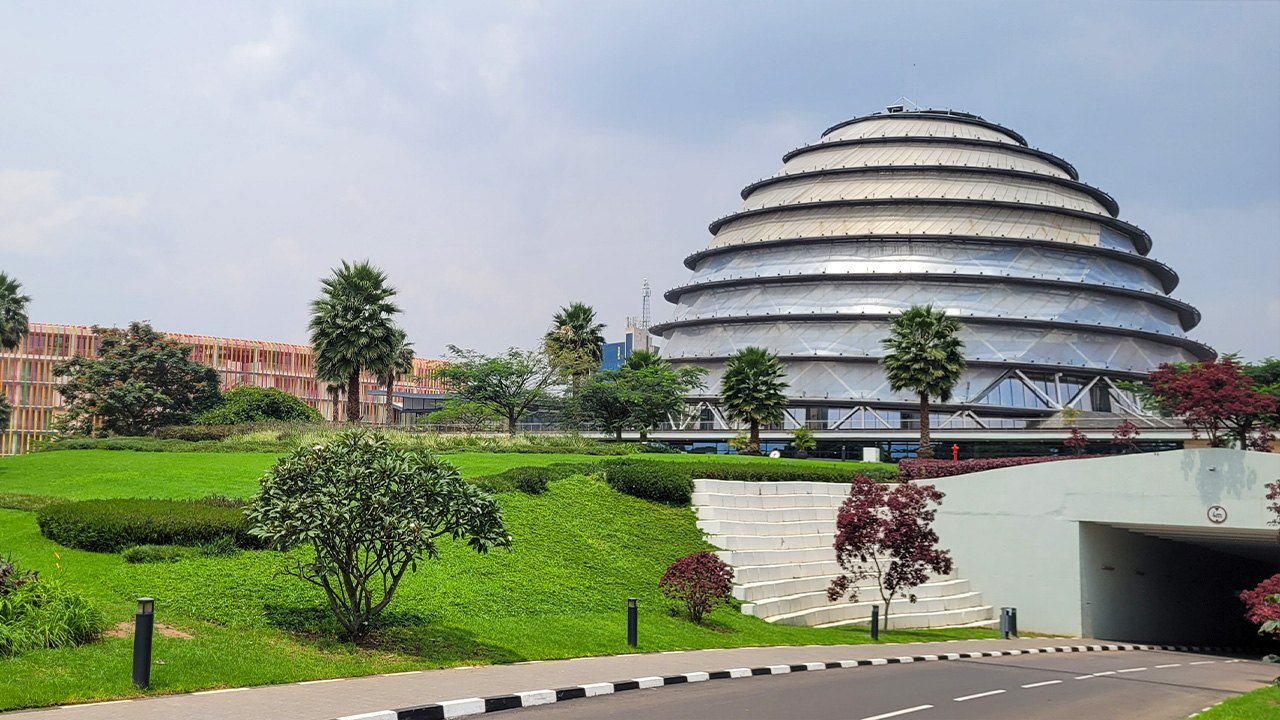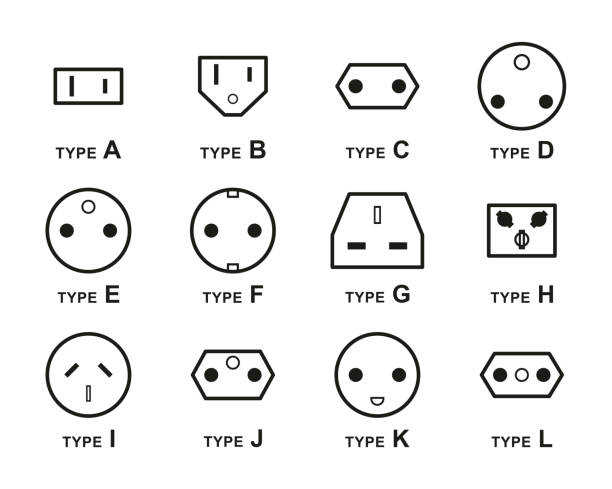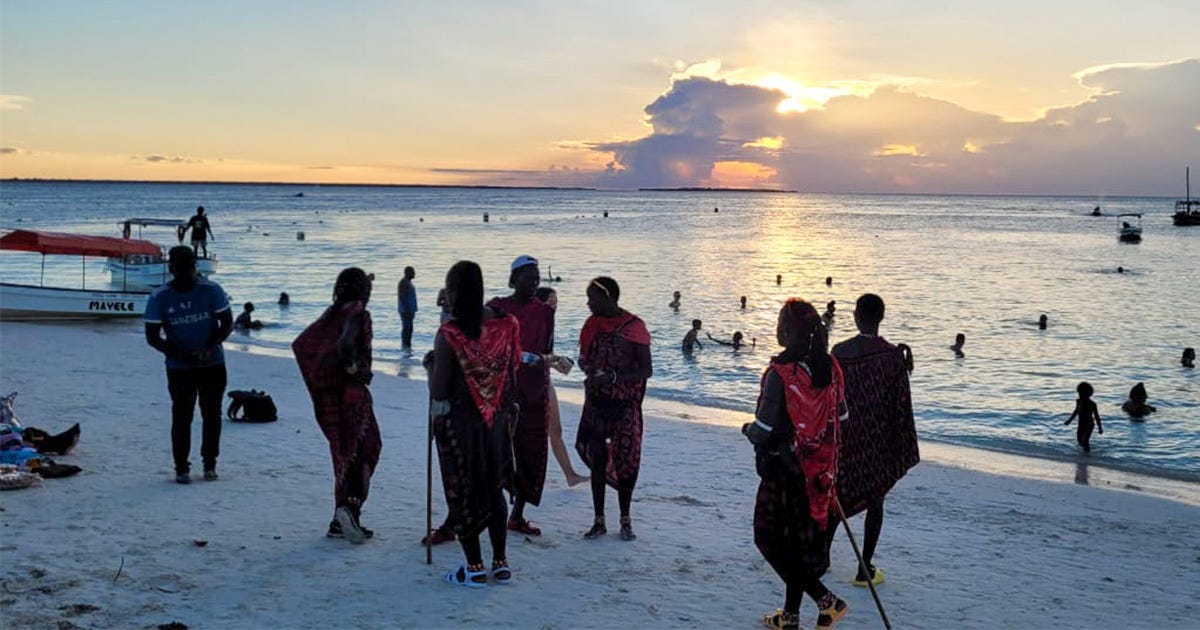
Kigali is a city pulsating with life, culture, and history. It is the capital of Rwanda, the Land of a Thousand Hills, and is a testament to resilience and rebirth.
This guide gives you all the essential information you need if you’re planning to move to Kigali or want to know more about this up-and-coming city.
While this guide provides crucial information to help with your plans, please remember that countries often update their rules, including visa requirements. So, double-checking the latest facts and details is always a good idea.
How to Get to Kigali
Kigali has its own airport, Kigali International Airport (KGL). This airport is well-connected with many big airlines flying in and out, making it easy to get here from different parts of the world.
The airport is about 5 kilometers east of the central business area. The distance is relatively short, and the drive typically takes about 10 to 20 minutes, but this can change depending on how busy the roads are.
There are two different transfer options from Kigali Airport to the city: taxi or bus. A taxi will take around 10 minutes to reach the city, while the KBS bus will take closer to 25 minutes.
If you’re on a tight budget, taking a bus to the city is a good option. However, for convenience, we suggest arranging a taxi in advance. You can ask your host or hotel to book it for you.
Visa Requirements
Rwanda has a visitor-friendly visa policy. Many nationalities can obtain a visa on arrival, and some can do so for free. For those from countries not covered by visa exemptions, Rwanda provides the flexibility of applying for a visa online.
Those opting for online applications can choose to pay online or after arriving in Rwanda. The visa cost is reasonable, with a single entry visa valid for 30 days, priced at no more than 50 USD, and a multiple entry valid for 90 days, priced at 70 USD.
Additionally, Rwanda offers the East African Tourist Visa for those planning to visit neighboring countries, Uganda or Kenya, for 100 USD. This visa allows travel between the three countries for up to 90 days. Just remember, if you choose this option, you need to apply for the visa in the first country you’ll be entering and can then freely travel between the three countries for the duration of the visa.
Essential Documents
Ensure your passport is valid for at least 6 months from entry into Rwanda. If you applied for a visa, bring a printed version of it.
Be prepared to show proof of an onward or return flight when you arrive in Rwanda, as they may ask for this information. If you don’t know where you plan to go next, consider using ticket rental services such as onward flight.
Some countries might request specific health documentation, such as a Yellow Fever vaccination certificate. Verify if your country of origin falls under this category. Also, Rwanda might implement specific health protocols in the event of significant health crises.
While travel and health insurance aren’t compulsory, they are strongly advised for your safety and peace of mind. If you’re looking for an affordable option, we recommend SafetyWing. We’ve put together a comprehensive guide to assist you in choosing the right travel insurance.

Travel Insurance Simplified: Your Guide to Safe and Secure Trips
Find affordable options and why travel insurance is essential for your next trip. Stay safe and enjoy your travels without unexpected troubles!
Language
Kinyarwanda is Rwanda’s most widely spoken language, but English and French are also commonly spoken.
You’ll generally find it easy to communicate in the city as an English speaker. However, fewer people speak English in more rural areas, which can be challenging. Nonetheless, people are often willing to help as best as possible.
Currency
The official currency is the Rwandan Franc (RWF). While US Dollars are accepted in most places, using the local currency is advisable to avoid potentially unfavorable exchange rates.
Credit cards are widely accepted in most establishments. Still, it’s worth carrying some Rwandan Francs for transactions in local markets or smaller shops, which might not accept card payments.
You’ll find ATMs and currency exchange services easily in Kigali, so you don’t need to exchange much money at the airport, where exchange rates are often less favorable.
For those planning an extended stay in Rwanda, consider purchasing a local SIM card. This allows you to use mobile payment services, which are very popular and convenient for making payments throughout Rwanda.
Getting Around in Kigali
Transport in Kigali has improved massively in recent years. Good roads, decent traffic management, and robust public transport make getting around more accessible than most major African cities.
Car Rentals
If you want convenience, plan to rent a car. The roads are in good condition, and the traffic is less hectic than in other African countries. The police are very strict with traffic rules, so people respect the rules.
Taxi Services
You can move around with moto-taxis or car taxis to avoid renting a car. Be prepared to negotiate the prices as apps are not widely adopted. It’s easier to go into the street and find a moto than to try to get a ride from the local apps. Motos are very cheap to move around, and most locals do it. Taxis are more for tourists, and the price tends to be way higher than that of motos.
In both options, you’ll need to negotiate the rates for your ride. As they don’t use GPS, you are expected to give instructions or to put your phone with the route over the shoulder of your driver; they are used to it.
Walking around
Walking around in Kigali is generally safe, as there are sidewalks in most areas, police everywhere, and pedestrians at zebra crossings are respected.
Also, It’s common to see people walking around, even at night. However, for added safety, it’s wise to be discreet with your belongings, stay aware of your surroundings, avoid walking alone, and steer clear of quiet or poorly lit areas. Being cautious is always a good idea.
What to Wear
In Rwanda, the dress code is casual yet respectful. Here are some general guidelines for dressing comfortably while showing respect for local customs:
- Trousers and Shorts: Trousers are a common choice, but shorts are also acceptable. Avoid overly casual or revealing attire, such as walking around shirtless, regardless of your choice.
- Length of Clothing: Opting for knee-length or longer clothing is often more comfortable and aligns well with the local culture’s modesty norms. This applies to both skirts and shorts.
Given Kigali’s warm daytime temperatures, light clothing is recommended. The evenings in Kigali can be cool, so having a light sweater is a good idea.
Best Time to Visit
Kigali is a year-round destination. However, the best time to visit is during the dry seasons, from June to September and December to February, which are ideal for wildlife viewing and outdoor activities.
Given Rwanda’s equatorial location and high elevation, Kigali’s temperature is relatively stable year-round. If you have plans to go gorilla trekking, which is one of the major attractions in Rwanda, check the availability of permits, as they are limited.
Safety
Kigali is renowned for being one of the safest capitals in Africa. Like in any major city, it’s wise to follow standard safety precautions. Keeping a low profile and being mindful of your surroundings, especially at night, will enhance your safety.
Security checks for vehicles and personal belongings are routine. They are part of the city’s efforts to maintain high safety standards. These checks are a normal part of life in Kigali and contribute to the city’s security.
As an international visitor, you might attract some attention or curious looks from locals. This is typical and is no cause for concern. Rwandans are known for politeness and reserved nature, so their attention is simply out of curiosity and rarely leads to uncomfortable situations.
Natural Disasters
Rwanda is generally safe from major natural disasters. However, like much of Eastern Africa, it has seen a change in its weather patterns over the years.
There has been an increase in extreme weather events, including more frequent heavy rains, floods, and droughts. Despite these challenges, Rwanda is proactively managing and adapting to these changes.
Health Concerns
Thanks to government efforts and community participation in malaria control programs, Rwanda has significantly reduced malaria infections and related deaths.
While Kigali is generally safer compared to some other regions in Rwanda, malaria does exist in the city, especially during the rainy seasons. Long-term residents and visitors often take precautions such as using mosquito repellents, sleeping under nets, and sometimes taking anti-malarial medication.
Where to stay
Kigali stands out as a city where safety and organization are widespread, making many neighborhoods suitable options for your stay. Here are some of the top neighborhoods in Kigali, each offering its distinctive allure:
- Kimihurura: Popular among expats, Kimihurura is vibrant and has a lively social scene. It has Plenty of restaurants, bars, and cafes, making it perfect for networking and socializing after work hours.
- Nyamirambo: If you’re looking for a more authentic and lively Rwandan experience, Nyamirambo is the place. It’s known for its cultural diversity, colorful streets, and local markets.
- Remera: An excellent choice for those who want a balance of work and leisure. Remera has a mix of local and international communities, providing local experiences and comfort.
- Kiyovu: Known for its serene environment and beautiful scenery, Kiyovu is ideal for those seeking a peaceful workplace. It’s close to the city center, offering easy access to cafes and co-working spaces.
Each neighborhood offers a range of accommodation options, from budget-friendly guesthouses to luxury apartments. I’ve stayed in Kimihurura for two months and loved my experience.
Electrical Plugs and Outlets
Like the rest of Rwanda, Kigali predominantly uses Type C and Type J electrical outlets. It’s advisable to bring a universal adapter to ensure compatibility.

Recommended Apps
To make your stay in Kigali more convenient, we recommend the following apps:
| App Name | Purpose |
|---|---|
| YegoCabs | For moto-taxis and regular cab service. |
| Vuba Vuba | Useful for food delivery services in Kigali. |
Tap Water Quality
Brushing your teeth with tap water in Kigali is safe. However, many locals prefer to drink bottled water.
It’s wise to ask your host about the tap water quality, especially if you have a sensitive stomach. In such cases, opting for bottled water is recommended.
Emergency Numbers
| Service | Phone Number |
|---|---|
| General Emergency | 112 |
| Traffic Accidents | 113 |
| Anti-Corruption | 997 |
| Gender-Based Violence | 3512 |
| Child Help Line | 116 |
| Abuse by Police Officer | 3511 |
| Traffic Police | 118 |
Share This Article
What to read next
Disclaimer: This post may include affiliate links. We may receive a commission at no extra cost to you if you click one of them. Thank you for your support!


